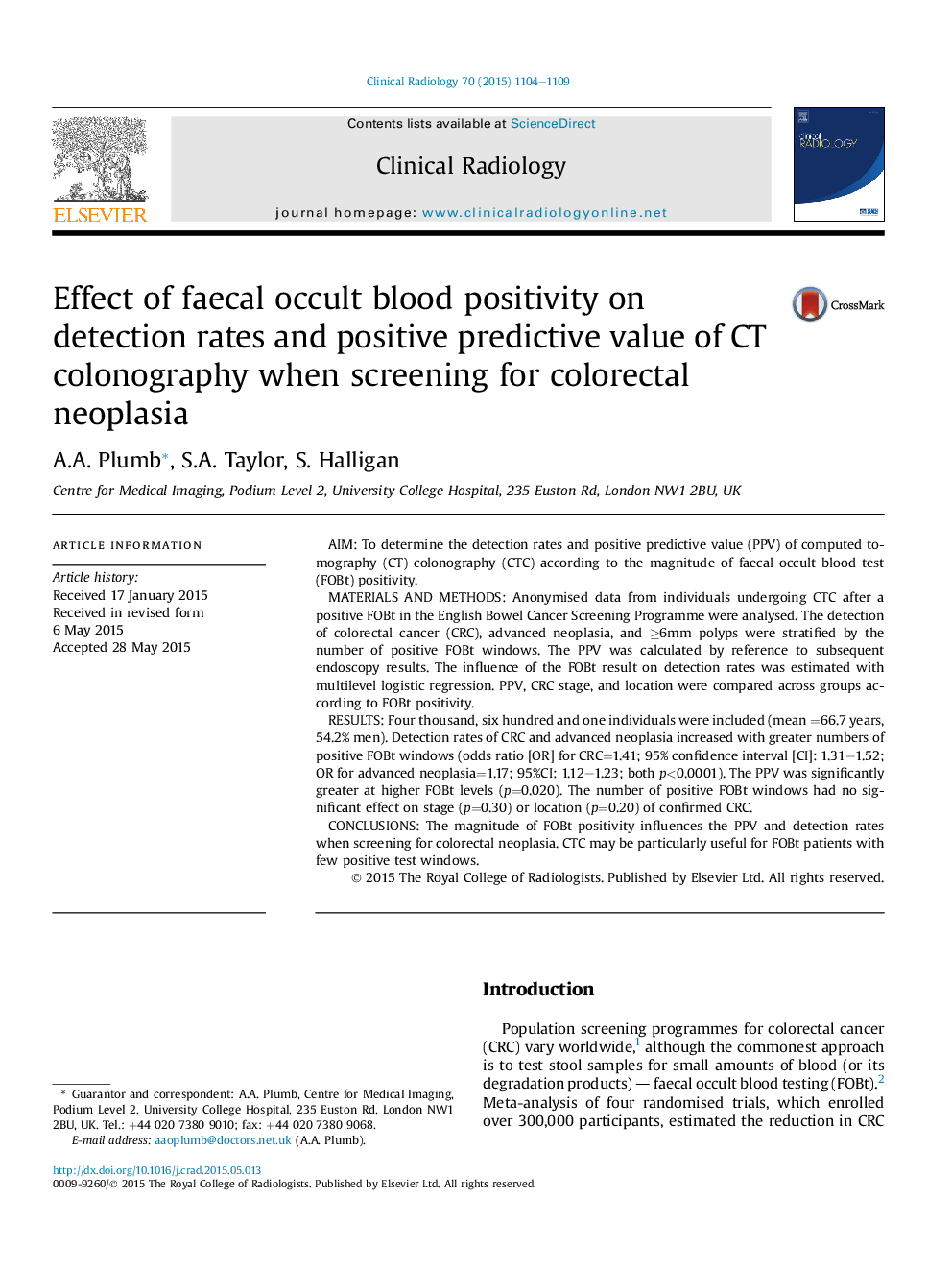| Article ID | Journal | Published Year | Pages | File Type |
|---|---|---|---|---|
| 3981503 | Clinical Radiology | 2015 | 6 Pages |
•Detection rates at CTC increase with higher levels of fecal occult blood (FOB).•Positive predictive value of CTC increases with greater FOB positivity.•Stage and location of cancers are not affected by magnitude of FOB positivity.•CTC may be valuable for otherwise low-risk patients with small amounts of FOB.
AimTo determine the detection rates and positive predictive value (PPV) of computed tomography (CT) colonography (CTC) according to the magnitude of faecal occult blood test (FOBt) positivity.Materials and methodsAnonymised data from individuals undergoing CTC after a positive FOBt in the English Bowel Cancer Screening Programme were analysed. The detection of colorectal cancer (CRC), advanced neoplasia, and ≥6mm polyps were stratified by the number of positive FOBt windows. The PPV was calculated by reference to subsequent endoscopy results. The influence of the FOBt result on detection rates was estimated with multilevel logistic regression. PPV, CRC stage, and location were compared across groups according to FOBt positivity.ResultsFour thousand, six hundred and one individuals were included (mean =66.7 years, 54.2% men). Detection rates of CRC and advanced neoplasia increased with greater numbers of positive FOBt windows (odds ratio [OR] for CRC=1.41; 95% confidence interval [CI]: 1.31–1.52; OR for advanced neoplasia=1.17; 95%CI: 1.12–1.23; both p<0.0001). The PPV was significantly greater at higher FOBt levels (p=0.020). The number of positive FOBt windows had no significant effect on stage (p=0.30) or location (p=0.20) of confirmed CRC.ConclusionsThe magnitude of FOBt positivity influences the PPV and detection rates when screening for colorectal neoplasia. CTC may be particularly useful for FOBt patients with few positive test windows.
